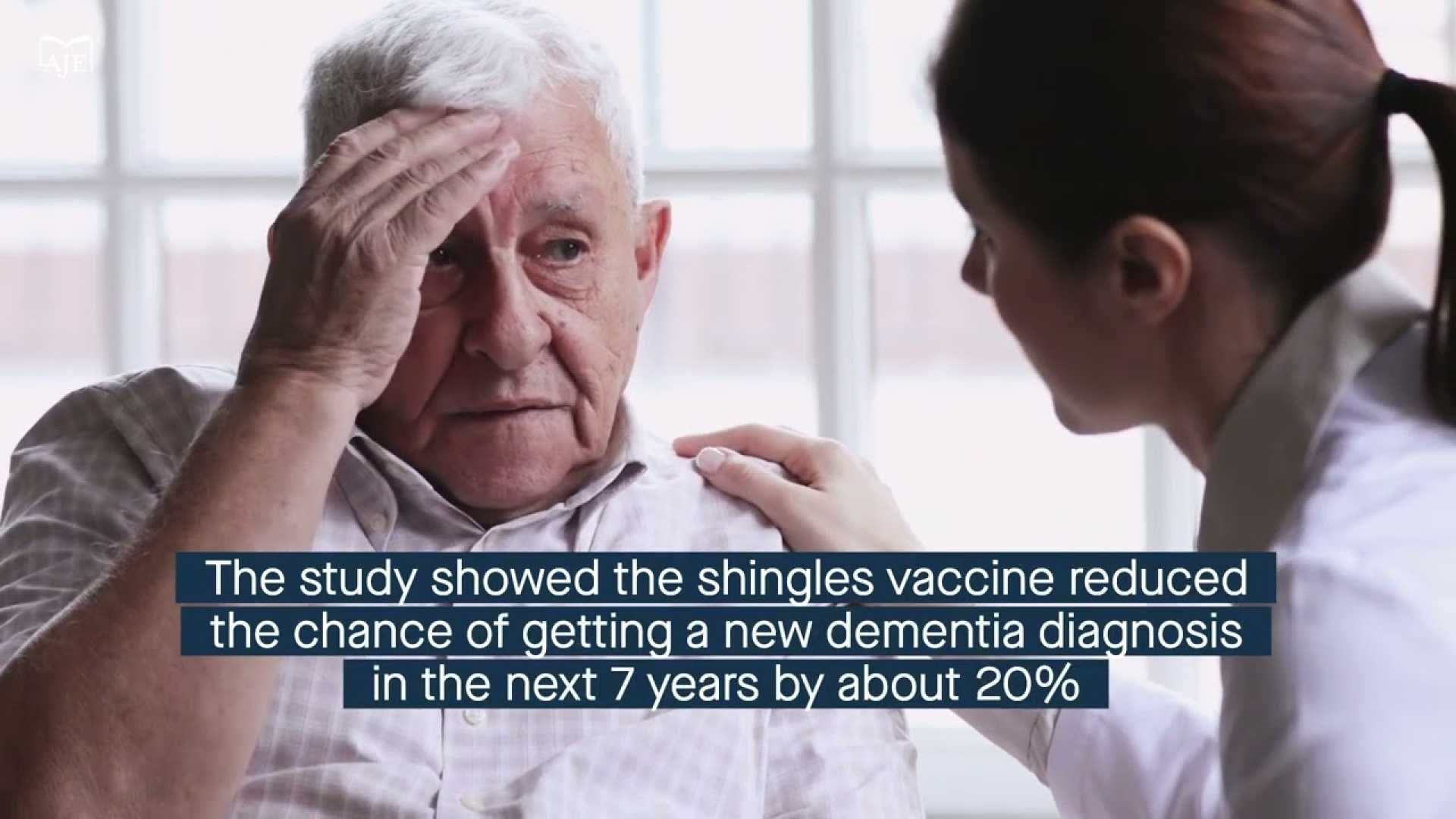Health
Shingles Vaccine May Cut Dementia Risk by 20%, Study Finds

Cardiff, Wales — A recent study has revealed that older adults in Wales who received the shingles vaccine Zostavax are 20% less likely to be diagnosed with dementia compared to those who did not receive the vaccination. The study, which analyzed health records of over 280,000 older adults, marks a significant contribution to understanding the potential benefits of vaccination in reducing dementia risk.
Researchers tracked dementia diagnoses over a seven-year period following a public health policy change in 2013, which made the shingles vaccine available to those born on or after September 2, 1933. This change created a natural experiment, dividing the older population into two distinct groups based on their eligibility for the vaccine.
Pascal Geldsetzer, a researcher at Stanford University, noted, “For the first time we are able to say much more confidently that the shingles vaccine causes a reduction in dementia risk. If this truly is a causal effect, we have a finding that’s of tremendous importance.”
The study gauges a growing connection between shingles vaccinations and reduced dementia rates, particularly considering that dementia affects more than 55 million people globally and is a leading cause of death in the UK.
After controlling for various factors, the researchers identified that those who had received the vaccine showed a 20% lower risk of dementia. The findings indicated an even more pronounced effect in women, highlighting potential differences in how the vaccine impacts various demographics.
Anupam Jena, a professor of healthcare policy at Harvard Medical School, stated, “The implications are profound.” He emphasized the potential for the vaccine as a cost-effective public health intervention that could lead to significant benefits beyond its primary purpose.
Dementia risks have been a growing concern; approximately one in three individuals will develop the condition in their lifetime. Although recent advances in medication can slow the progression of dementia, no cure exists.
The study builds on previous research that hinted at the protective effects of shingles vaccinations against dementia. Initial studies in the U.S. after the Zostavax rollout in 2006 showed a similar trend, with lower dementia rates among vaccinated individuals. Last year, research on Shingrix, a newer shingles vaccine, reinforced these findings.
Geldsetzer is now seeking funding for a randomized clinical trial to confirm these benefits and clarify the mechanisms behind the vaccine’s potential protective effects. Current theories suggest that shingles vaccines may mitigate inflammation in the nervous system or trigger broader immune responses that protect cerebral health, particularly among women.
Julia Dudley, head of research at Alzheimer’s Research UK, commented on the study’s significance, stating, “While previous studies suggested an association, this research offers stronger evidence of a direct link, with greater benefit observed in women.”
She stressed the necessity of understanding the mechanisms at play regarding gender differences and exploring new avenues for dementia prevention and treatment.
Maxime Taquet, who conducted a separate study discovering reduced dementia risk after Shingrix vaccination, noted that adjuvants in Shingrix could enhance immune responses and play a critical role in providing superior protection.
Taquet concluded, “Both studies provide strong support for the hypothesis that shingles vaccination reduces dementia risk, with the newer recombinant vaccine offering superior protection.”












